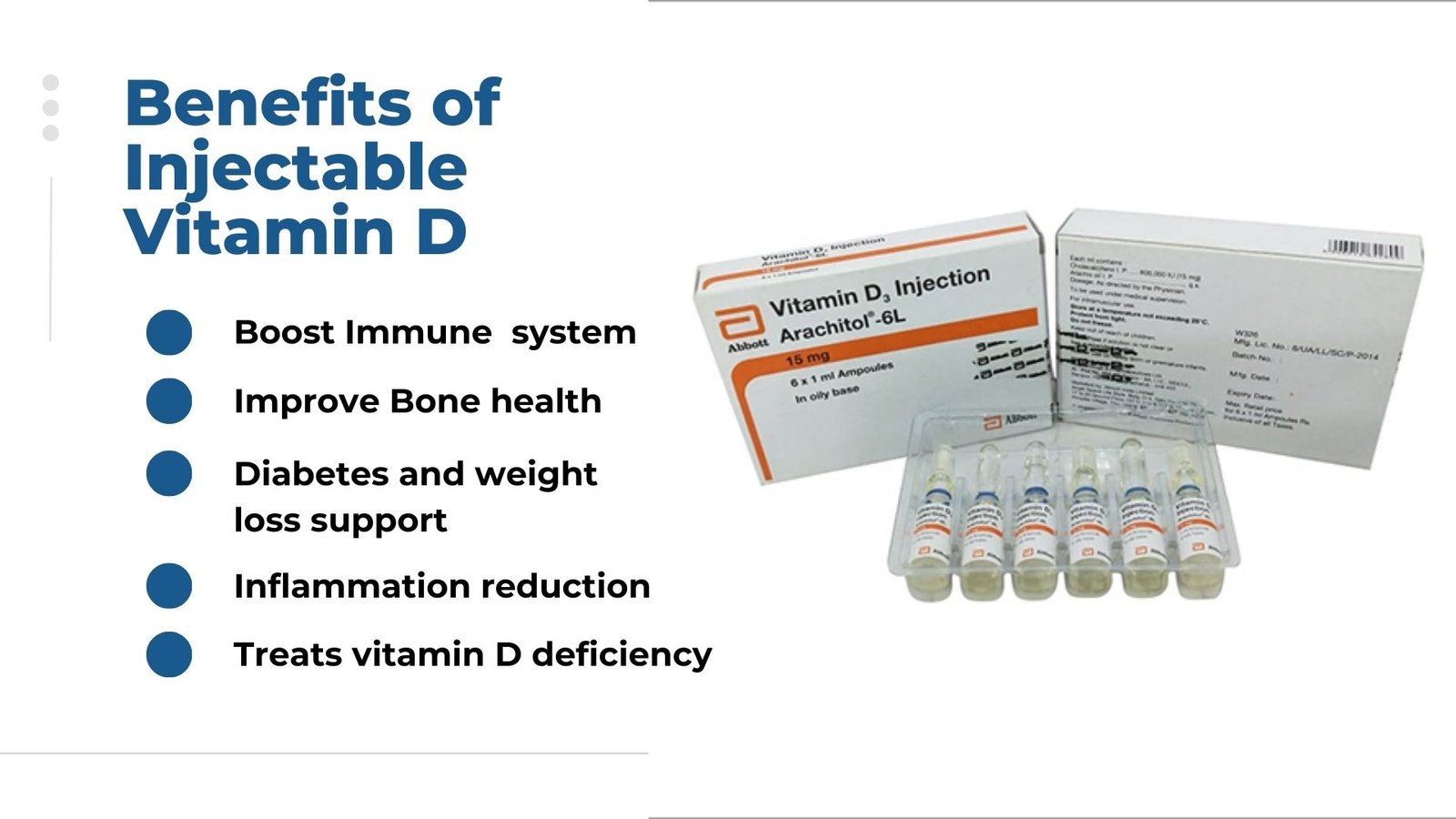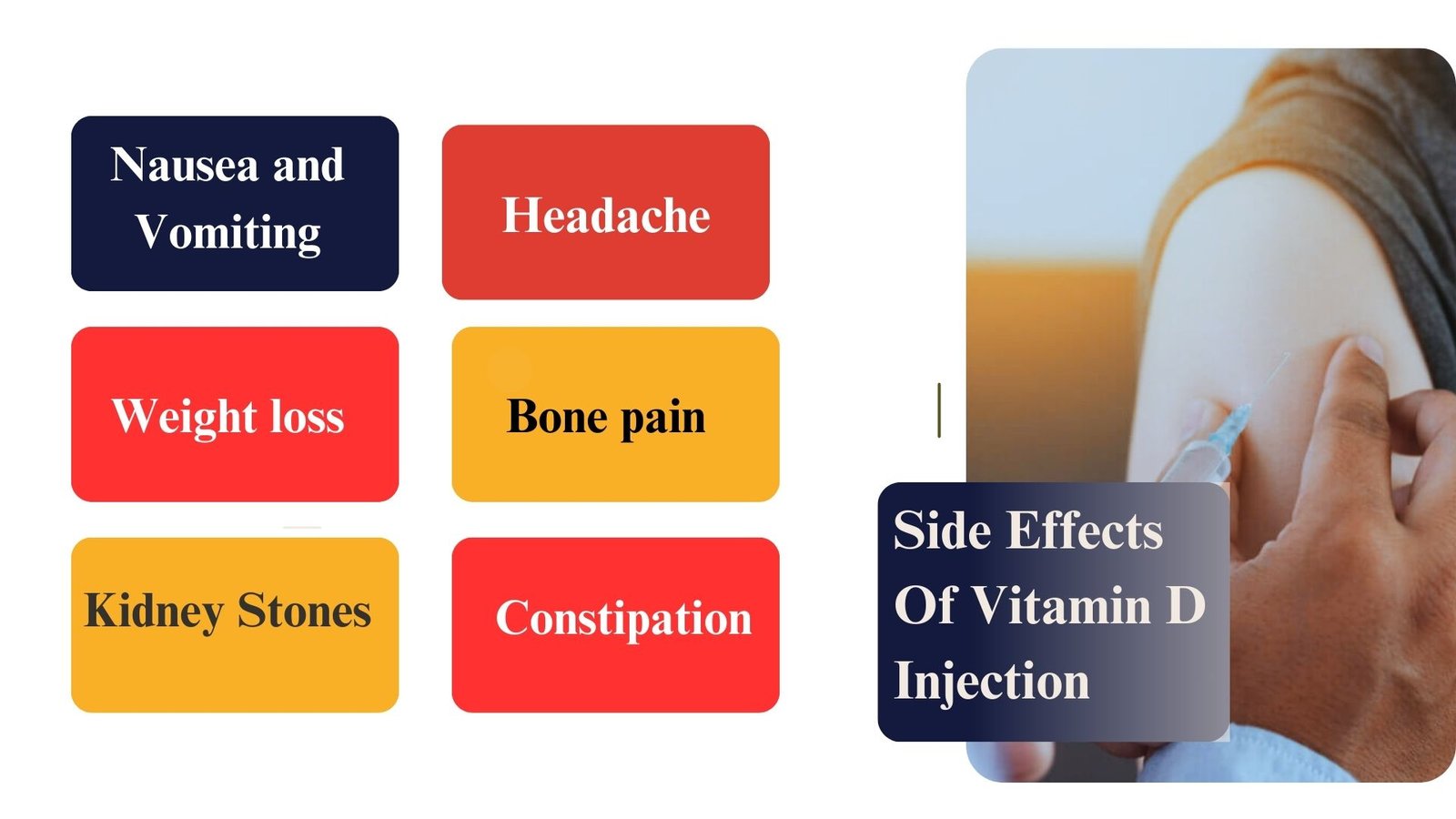All About Vitamin D Injections: How They Work, Dosage, and Side Effects
Vitamin D is an essential nutrient that plays a vital role in maintaining the health and function of our body. It involves various physiological processes, including bone health, immune system regulation, and hormone production. Unfortunately, many worldwide suffer from vitamin D deficiency, leading to several health problems. In this blog post, we will discuss how vitamin d injections can be the ultimate solution for vitamin D deficiency.
Understanding Vitamin D Deficiency
Vitamin D deficiency is a widespread health problem affecting millions of people worldwide. It occurs when the body does not get enough vitamin D from dietary sources or exposure to sunlight. The primary function of vitamin D is to promote calcium absorption in the body, which is essential for maintaining strong bones and teeth. However, vitamin D also plays a crucial role in regulating the immune system, reducing inflammation, and improving overall healthy life.
Common Symptoms of Vitamin D Deficiency

Vitamin D deficiency can manifest in various ways due to its crucial role in maintaining bone health, immune function, and overall well-being. Here’s an explanation of the common symptoms:
- Weakness and Fatigue: Vitamin D helps in energy production and muscle function. Low levels can lead to feelings of tiredness and weakness, making everyday tasks feel more draining than usual.
- Bone Pain and Muscle Weakness: Vitamin D is essential for calcium absorption, which is necessary for bone strength. Without enough vitamin D, bones can become thin and brittle, leading to bone pain and muscle weakness. Over time, this can increase the risk of fractures and conditions like osteoporosis.
- Depression and Mood Changes: Vitamin D affects brain function and has been linked to mood regulation. Deficiency can contribute to feelings of depression, anxiety, or irritability. Research suggests that people with low vitamin D levels may have an increased risk of mood disorders.
- Hair Loss: While hair loss can be caused by many factors, vitamin D deficiency is one potential contributor. Vitamin D plays a role in the growth of hair follicles, and a lack of it can lead to thinning or excessive hair loss, sometimes even linked to alopecia areata.
- Slow Healing of Wounds: Vitamin D is important for tissue repair and immune response. When the body is low on this vitamin, wounds may take longer to heal due to impaired production of compounds that aid in tissue regeneration and inflammation control.
- Increased Risk of Infections: Vitamin D strengthens the immune system by promoting the function of immune cells that fight off bacteria and viruses. A deficiency can compromise immune defenses, leading to more frequent illnesses like colds, respiratory infections, and even an increased risk of chronic conditions.
Addressing vitamin D deficiency through sunlight exposure, dietary changes, or supplements can help alleviate these symptoms. Vitamin D deficiency can also lead to several health problems, such as osteoporosis, rickets, and an increased risk of chronic diseases like diabetes, cardiovascular diseases, and cancer.
Causes of Vitamin D Deficiency: A key Points

Several factors can contribute to vitamin D deficiency. The most common causes include:
- Limited sun exposure: Our bodies produce vitamin D when our skin is exposed to sunlight. However, many people do not get enough sun exposure due to their lifestyle or living in regions with limited sunlight.
- Poor diet: Vitamin D is found in a few food sources, such as fatty fish, egg yolks, and fortified foods like milk and cereals. People who follow a strict vegetarian or vegan diet may not get enough vitamin D from their diet.
- Obesity: People with obesity may have lower vitamin D levels in their blood because fat cells can absorb and store vitamin D, preventing it from circulating in the bloodstream.
- Age: As we age, our skin becomes less efficient at producing vitamin D, and our kidneys become less efficient at converting it into its active form.
- Health conditions: Some health conditions can affect the absorption and metabolism of vitamin D, such as Crohn’s disease, celiac disease, and liver or kidney diseases.
- Medications: Certain medications, such as glucocorticoids and anticonvulsants, can interfere with vitamin D metabolism and lead to deficiency.
The Solution: Injectable Vitamin D
Injectable Vitamin D is an innovative solution for people who are unable to get enough vitamin D through their diet or sun exposure. Injectable Vitamin D is a highly concentrated form of vitamin D administered directly into the bloodstream through an injection. This form of vitamin D bypasses the digestive system, ensuring that the body absorbs the maximum amount of vitamin D.
Benefits of Injectable Vitamin D

Injectable Vitamin D offers several benefits over other forms of vitamin D supplements, including
- Boosts Immune System: Injectable Vitamin D plays a crucial role in strengthening the immune system. It enhances the body’s ability to fight infections by activating the immune cells, which is particularly beneficial in preventing illnesses like colds, flu, and other diseases.
- Elevated Mood: Vitamin D helps regulate serotonin levels, a neurotransmitter that affects mood. Injectable Vitamin D ensures adequate levels of this vital nutrient, which can help combat feelings of sadness and promote emotional well-being.
- Improves Bone Health: Vitamin D is essential for calcium absorption, a mineral critical for maintaining strong and healthy bones. Injectable Vitamin D can effectively support bone density, preventing conditions like osteoporosis and fractures.
- Cardiovascular Health: Injectable Vitamin D contributes to heart health by regulating blood pressure and improving the functioning of the cardiovascular system. It also helps reduce the risk of heart-related issues by managing inflammation and calcium buildup in arteries.
- Treats Vitamin D Deficiency: For individuals with severe Vitamin D deficiency, injectable Vitamin D offers a quick and efficient solution to restore optimal levels. It bypasses digestive absorption issues, delivering immediate benefits.
- Diabetes and Weight Loss Support: Vitamin D improves insulin sensitivity and helps regulate blood sugar levels, which is beneficial for managing diabetes. It also plays a role in weight management by reducing inflammation and enhancing metabolic function.
- Reduces Anxiety: Adequate Vitamin D levels are linked to reduced anxiety symptoms. Injectable Vitamin D can help manage stress by supporting neurotransmitter balance and reducing inflammation in the brain.
- Inflammation Reduction: Vitamin D has anti-inflammatory properties that can help reduce chronic inflammation, a key factor in various health conditions, including arthritis, autoimmune diseases, and metabolic disorders.
- Improves Hair Health: Injectable Vitamin D supports hair follicles, promoting healthy hair growth. Deficiency in Vitamin D can lead to thinning hair or hair loss, making supplementation essential for maintaining hair health.
- Increased Energy: Injectable supplements can combat fatigue and low energy by optimizing vitamin D levels. This nutrient supports cellular energy production, keeping you active and alert throughout the day.
- Low Mood and Depression: Vitamin D deficiency has been linked to depression and mood disorders. Vitamin D helps maintain stable mood levels by supporting brain function and hormone regulation.
- Supports Brain Function: Vitamin D plays a vital role in brain health by protecting neurons, enhancing cognitive function, and reducing the risk of neurodegenerative diseases. Injectable Vitamin D ensures the brain receives sufficient amounts to operate efficiently.
Injectable Vitamin D is a powerful and efficient way to address deficiency and enjoy these remarkable health benefits. Could you consult your healthcare provider to determine if this supplementation is good for you?
The Procedure
The procedure for Injectable Vitamin D is quick and simple. It involves a small needle injection into the muscle, usually in the upper arm or thigh. The dosage and frequency of injections will depend on the individual’s vitamin D levels and the severity of the deficiency. Working with a healthcare provider to determine the appropriate dosage and schedule for Injectable Vitamin D is essential.
Precautions and Side Effects Of Vitamin D Injection
Like any medication or supplement, injectable vitamin D can cause side effects, although generally mild and manageable. Below are some common injection vitamin D side effects:

- Nausea and Vomiting: Some people may experience an upset stomach or feelings of nausea after receiving injectable vitamin D. This could be the body adjusting to the sudden increase in vitamin D levels.
- Headaches: A rise in vitamin D levels may trigger headaches in certain individuals, especially if their body is sensitive to rapid changes in nutrient levels. This symptom is usually temporary and subsides once the body acclimates.
- Dizziness: Feeling lightheaded or dizzy is another mild side effect that can occur with vitamin D injections. This might be due to shifts in calcium levels as vitamin D promotes calcium absorption, which can temporarily affect balance.
- Muscle Weakness: While vitamin D is essential for muscle health, an imbalance caused by a sudden increase in vitamin D may result in temporary muscle weakness. This symptom usually improves as the body adjusts to the new levels.
- Increased Thirst and Urination: Vitamin D helps regulate calcium in the body, and high doses can sometimes cause excessive calcium, leading to increased thirst and urination. This side effect, known as hypercalcemia, may require monitoring if symptoms persist.
Injectable Vitamin D is generally safe but not recommended for everyone. People with high levels of vitamin D in their blood, certain medical conditions, and those taking specific medications should avoid injections. It is essential to consult a healthcare provider before starting vitamin d injection dose or any new supplement.
Conclusion
Vitamin D deficiency is a widespread health problem that can lead to several health issues. Injectable Vitamin D is an innovative and effective solution for people who cannot get enough vitamin D through their diet or sun exposure. It offers several benefits, including high efficiency, fast-acting, convenience, customizable dosage, and safety. Injectable Vitamin D is a simple and quick procedure that can help alleviate symptoms of vitamin D deficiency and improve overall health. It is essential to work with a healthcare provider to determine the appropriate dosage and schedule for Injectable Vitamin D and to report any side effects immediately. With Injectable Vitamin D, people can ensure they get enough vitamin D and maintain optimal health.

